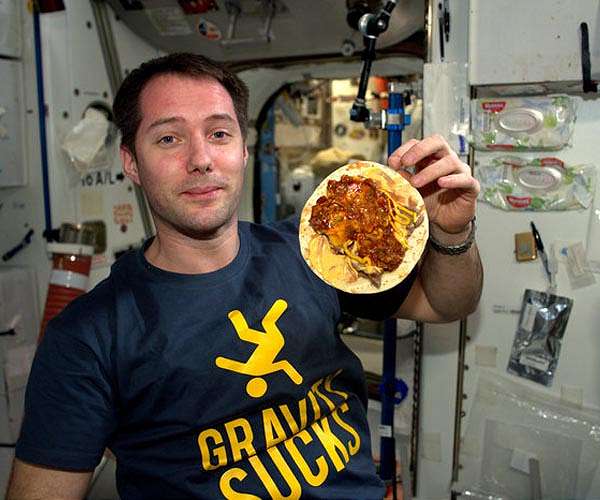Food aroma research sheds light on taste problems in space
Simon Mansfield
Sydney, Australia (SPX) July 17, 2024
Scientists at RMIT University have carried out pioneering research into food aromas that could explain why astronauts have a harder time tasting their food in space, leading to poor nutrition.
The research, published in the International Journal of Food Science and Technology, also has implications for improving the diet of isolated people, such as nursing home residents, by customising aromas to enhance the flavour of foods.
Previous research has highlighted the important role that aroma plays in the flavour of food, and in this study participants were asked to use virtual reality goggles to test how vanilla, almond extracts and lemon essential oil were perceived differently in a normal Earth environment compared to the confined environment of the International Space Station (ISS).
Lead researcher Dr Julia Lo, from the School of Science, noted that the vanilla and almond scents became more pronounced in the simulated ISS environment, while the lemon scent remained unchanged.
The team found that benzaldehyde, a sweet chemical found in the scent of vanilla and almond, could explain these changes in perception, in addition to individual sensitivity to certain smells.
“Increased feelings of loneliness and isolation may also be a factor, and this study has implications for how isolated people perceive food smells and tastes,” Lo said.
This study is the first to include a large sample size of 54 adults, capturing the diversity of personal experiences of scents and tastes in an isolated environment.
“One of the long-term goals of this research is to develop a more suitable diet for astronauts and others in isolated environments that provides closer to 100 percent nutritional intake,” Lo said.
She added that their findings on the role of spatial awareness in olfaction complement other studies of astronauts’ eating experiences in space, including fluid shift phenomena.
Weightlessness causes fluids to shift from the lower to the upper body, causing facial swelling and nasal congestion and affecting the sense of smell and taste. These symptoms usually subside after a few weeks on the space station.
“The astronauts still couldn’t enjoy their meals even after the effects of the fluid shift had worn off, which suggests there may be something more to it,” Lo said.
Associate Professor Gail Iles, a former astronaut instructor and RMIT collaborator, highlighted the importance of the research for long-term missions.
“With Artemis, particularly as we go to Mars, we have long-term missions that will take years to complete, so there’s a real need to understand the issue of diet and food and how crews interact with food,” Iles said.
“The great thing about this VR research is that it really simulates the experience of being in the space station, and it really changes the way you smell and taste.”
Associate Professor Jayani Chandrapala, a food chemistry expert at RMIT, highlighted the role of benzaldehyde in altering the perception of smell in the space simulations.
“In our research, we believe it’s this sweet scent that creates a very strong scent in the VR environment,” Chandrapala said.
Low added that the findings could benefit people living in socially isolated environments around the world.
“The findings may help personalize diets and improve nutritional intake for people in socially isolated situations, such as nursing homes,” Lo said.
Research Report: Olfactory Recognition in a Virtual Spacecraft? A Ground-Based Sensory and Chemical Data Collection Approach
Related Links
RMIT University
Space Tourism, Space Transportation, Space Exploration News


